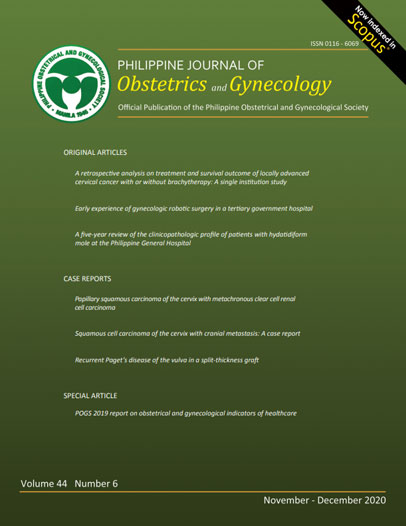Search for articles
Article Detail
Knowledge, attitudes, and practices of Filipino clinical practitioners regarding fertility preservation in cancer patients
Patricia Ann A. Factor, MD and Virgilio M. Novero, Jr., MD, MSc, FPOGS, FPSRM
Department of Obstetrics and Gynecology, Philippine General Hospital, University of the Philippines-Manila
Objectives: This study aims to determine the knowledge, attitudes, and practices of Filipino clinical practitioners on fertility preservation in cancer patients.
Methodology: This was a cross-sectional study carried out between June and September 2019 using a self- administered questionnaire. The questionnaires were sent to clinicians (medical oncologists, hematologists, surgical oncologists, and radiation oncologists) who were directly involved in the treatment patients with cancer.
Results: There were 213 respondents composed of 91 surgical oncologists (varied subspecialties), 81 medical oncologists, and 41 radiation oncologists. Most of the clinical practitioners, 58-85%, have not encountered patients who have availed of any fertility preservation method. In terms of knowledge, 53-73% of respondents were aware about some fertility preservation options, but had minimal knowledge. Ninety five percent of study participants acknowledged the need for more information on fertility preservation. Majority of clinicians (57%) have never referred to a fertility specialist; and only 38% have referred a patient for fertility preservation. The following factors were cited as barriers to discussion of fertility preservation: lack of knowledge of clinicians, poor success rates of fertility preservation, poor prognosis of patients, and prohibitive costs of treatment.
Conclusion: There is an acute need to increase knowledge and awareness about fertility preservation methods and international fertility preservation guidelines among Filipino health practitioners treating cancer patients.
Current Issue
Search article

